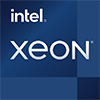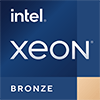
Intel Core i7-3720QM Benchmark, Test and specs
Last updated:
The Intel Core i7-3720QM is a 4 core processor. It can handle 8 threads simultaneously and was introduced in Q2/2012. The Intel Core i7-3720QM is based on the 3. generation of the Intel Core i7 series and requires a mainboard with the socket BGA 1224. The Intel Core i7-3720QM scores 758 points with one CPU core in the Geekbench 5 benchmark. When using all CPU cores, the result is 3,044 points.

| Name: | Intel Core i7-3720QM |
|---|---|
| Family: | Intel Core i7 (298) |
| CPU group: | Intel Core i 3000M (29) |
| Architecture: | Ivy Bridge H |
| Segment: | Mobile |
| Generation: | 3 |
| Predecessor: | -- |
| Successor: | -- |
CPU Cores and Base Frequency
The 4 CPU cores of the Intel Core i7-3720QM clock with 2.60 GHz (3.60 GHz). The number of CPU cores and the clock frequency of the processor are largely responsible for the overall performance.
| CPU Cores / Threads: | 4 / 8 |
|---|---|
| Core architecture: | normal |
| Cores: | 4x |
| Hyperthreading / SMT: | Yes |
|---|---|
| Overclocking: | No |
| Frequency: | 2.60 GHz |
| Turbo Frequency (1 Core): | 3.60 GHz |
| Turbo Frequency (4 Cores): | -- |
Internal Graphics
With the Intel HD Graphics 4000, the Intel Core i7-3720QM has an build in graphic solution. It has 16 SM processors, which have a total of 128 texture shaders. The iGPU not only enables games, but also significantly accelerates video playback.
| GPU name: | Intel HD Graphics 4000 |
|---|---|
| GPU frequency: | 0.65 GHz |
| GPU (Turbo): | 1.25 GHz |
| Compute units: | 16 |
| Shader: | 128 |
| Hardware Raytracing: | No |
| Release date: | Q1/2011 |
| Max. displays: | 3 |
|---|---|
| Generation: | 7 |
| Direct X: | 11.0 |
| Technology: | 22 nm |
| Max. GPU Memory: | 2 GB |
| Frame Generation: | No |
Hardware codec support
Processors that have an integrated graphics can play videos faster and more efficiently. This can have a positive effect on the battery life of notebooks, for example.
| h265 / HEVC (8 bit): | No |
|---|---|
| h265 / HEVC (10 bit): | No |
| h264: | Decode / Encode |
| VP8: | No |
| VP9: | No |
| AV1: | No |
|---|---|
| AVC: | Decode / Encode |
| VC-1: | Decode |
| JPEG: | Decode |
Memory & PCIeThe Intel Core i7-3720QM supports up to 32 GB memory in up to 2 (Dual Channel) memory channels. This results in a maximum memory bandwidth of 25.6 GB/s. |
|
| Memory type: | Memory bandwidth: |
|---|---|
| DDR3L-1333 DDR3L-1600 DDR3-1333 DDR3-1600 | 21.3 GB/s 25.6 GB/s 21.3 GB/s 25.6 GB/s |
| Max. Memory: | 32 GB |
| Memory channels: | 2 (Dual Channel) |
| ECC: | No |
| PCIe: | 3.0 x 16 |
| PCIe Bandwidth: | 15.8 GB/s |
Thermal ManagementWith the TDP, the processor manufacturer specifies the cooling solution required for the processor. The Intel Core i7-3720QM has a TDP of 45 W. |
|
|---|---|
| TDP (PL1 / PBP): | 45 W |
| TDP (PL2): | -- |
| TDP up: | -- |
| TDP down: | -- |
| Tjunction max.: | 105 °C |
Technical details
The Intel Core i7-3720QM has a 6.00 MB large cache. The processor is manufactured in 22 nm. Modern production increases the efficiency of the processor.
| Technology: | 22 nm |
|---|---|
| Chip design: | Monolithic |
| Socket: | BGA 1224 |
| L2-Cache: | -- |
| L3-Cache: | 6.00 MB |
| AES-NI: | Yes |
| Operating systems: | Windows 10, Linux |
| Virtualization: | VT-x, VT-x EPT |
|---|---|
| Instruction set (ISA): | x86-64 (64 bit) |
| ISA extensions: | SSE4.1, SSE4.2, AVX |
| Release date: | Q2/2012 |
| Release price: | 363 $ |
| Part Number: | -- |
| Documents: | Technical data sheet |
Rate this processor
Benchmark results

The benchmark results for the Intel Core i7-3720QM have been carefully checked by us. We only publish benchmark results that have been created by us or that have been submitted by a visitor and then checked by a team member. All results are based on and fullfill our benchmark guidelines.
Geekbench 5, 64bit (Single-Core)
Geekbench 5 is a cross plattform benchmark that heavily uses the systems memory. A fast memory will push the result a lot. The single-core test only uses one CPU core, the amount of cores or hyperthreading ability doesn't count.

|
AMD Ryzen 3 3300U
4C 4T @ 3.50 GHz |
||

|
Intel Core i5-2500k
4C 4T @ 3.70 GHz |
||

|
Intel Core i5-5257U
2C 4T @ 3.10 GHz |
||
|
|
Intel Core i7-3720QM
4C 8T @ 3.60 GHz |
||

|
Intel Core i3-6100H
2C 4T @ 2.70 GHz |
||

|
Intel Xeon E5-2683 v3
14C 28T @ 3.00 GHz |
||
|
|
HiSilicon Kirin 990 5G
8C 8T @ 2.86 GHz |
||
Geekbench 5, 64bit (Multi-Core)
Geekbench 5 is a cross plattform benchmark that heavily uses the systems memory. A fast memory will push the result a lot. The multi-core test involves all CPU cores and taks a big advantage of hyperthreading.

|
Intel Xeon X3470
4C 8T @ 3.20 GHz |
||

|
Qualcomm Snapdragon Microsoft SQ2
8C 8T @ 3.15 GHz |
||

|
Intel Core i7-4770HQ
4C 8T @ 2.20 GHz |
||
|
|
Intel Core i7-3720QM
4C 8T @ 2.60 GHz |
||

|
Intel Xeon Bronze 3204
6C 6T @ 1.90 GHz |
||

|
AMD FX-9370
8C 8T @ 4.70 GHz |
||

|
Intel Core i7-4810MQ
4C 8T @ 3.70 GHz |
||
Geekbench 6 (Single-Core)
Geekbench 6 is a benchmark for modern computers, notebooks and smartphones. What is new is an optimized utilization of newer CPU architectures, e.g. based on the big.LITTLE concept and combining CPU cores of different sizes. The single-core benchmark only evaluates the performance of the fastest CPU core, the number of CPU cores in a processor is irrelevant here.

|
Intel Core i5-3475S
4C 4T @ 3.60 GHz |
||

|
Intel Core i5-3470
4C 4T @ 3.60 GHz |
||

|
Intel Core i7-2600S
4C 8T @ 3.80 GHz |
||
|
|
Intel Core i7-3720QM
4C 8T @ 3.60 GHz |
||

|
Intel Core i5-3470S
4C 4T @ 3.60 GHz |
||

|
Intel Xeon E5-2697 v2
12C 24T @ 3.50 GHz |
||

|
Intel Core i7-2700K
4C 8T @ 3.90 GHz |
||
Geekbench 6 (Multi-Core)
Geekbench 6 is a benchmark for modern computers, notebooks and smartphones. What is new is an optimized utilization of newer CPU architectures, e.g. based on the big.LITTLE concept and combining CPU cores of different sizes. The multi-core benchmark evaluates the performance of all of the processor's CPU cores. Virtual thread improvements such as AMD SMT or Intel's Hyper-Threading have a positive impact on the benchmark result.

|
Intel Core i5-7260U
2C 4T @ 3.40 GHz |
||

|
Intel Core i3-7300
2C 4T @ 4.00 GHz |
||

|
Intel Core i5-7360U
2C 4T @ 3.60 GHz |
||
|
|
Intel Core i7-3720QM
4C 8T @ 2.60 GHz |
||

|
Qualcomm Snapdragon 7c+ Gen 3
8C 8T @ 2.40 GHz |
||

|
Intel Core i7-2600K
4C 8T @ 3.80 GHz |
||

|
Intel Core i3-4370
2C 4T @ 3.80 GHz |
||
iGPU - FP32 Performance (Single-precision GFLOPS)
The theoretical computing performance of the internal graphics unit of the processor with simple accuracy (32 bit) in GFLOPS. GFLOPS indicates how many billion floating point operations the iGPU can perform per second.

|
AMD A9-9420
AMD Radeon R5 (Stoney Ridge) @ 0.85 GHz |
||

|
AMD A9-9425
AMD Radeon R5 (Stoney Ridge) @ 0.85 GHz |
||

|
AMD A8-7200P
AMD Radeon R5 (Kaveri) @ 0.63 GHz |
||
|
|
Intel Core i7-3720QM
Intel HD Graphics 4000 @ 1.25 GHz |
||

|
Intel Xeon W-11155MRE
Intel UHD Graphics 11th Gen (16 EU) @ 1.25 GHz |
||

|
Intel Xeon W-11155MLE
Intel UHD Graphics 11th Gen (16 EU) @ 1.25 GHz |
||

|
Intel Core i7-3820QM
Intel HD Graphics 4000 @ 1.25 GHz |
||
Estimated results for PassMark CPU Mark
Some of the CPUs listed below have been benchmarked by CPU-monkey. However the majority of CPUs have not been tested and the results have been estimated by a CPU-monkey’s secret proprietary formula. As such they do not accurately reflect the actual Passmark CPU mark values and are not endorsed by PassMark Software Pty Ltd.

|
Intel Core i7-4760HQ
4C 8T @ 2.10 GHz |
||

|
AMD Phenom II X6 1090T
6C 6T @ 3.60 GHz |
||

|
Intel Core i7-3820QM
4C 8T @ 2.70 GHz |
||
|
|
Intel Core i7-3720QM
4C 8T @ 2.60 GHz |
||

|
Intel Core i7-2700K
4C 8T @ 3.90 GHz |
||

|
AMD Ryzen 3 3300U
4C 4T @ 2.10 GHz |
||

|
Intel Core i5-4690K
4C 4T @ 3.70 GHz |
||
CPU-Z Benchmark 17 (Multi-Core)
The CPU-Z benchmark measures a processor's performance by measuring the time it takes the system to complete all benchmark calculations. The faster the benchmark is completed, the higher the score.

|
Intel Core i5-8250U
4C 8T @ 1.60 GHz |
||

|
Intel Core i5-1035G1
4C 8T @ 1.00 GHz |
||

|
AMD Ryzen 5 PRO 2500U
4C 8T @ 2.00 GHz |
||
|
|
Intel Core i7-3720QM
4C 8T @ 2.60 GHz |
||

|
Intel Core i7-8550U
4C 8T @ 1.80 GHz |
||

|
Intel Core i5-1035G7
4C 8T @ 1.20 GHz |
||

|
AMD Ryzen 3 3200G
4C 4T @ 3.60 GHz |
||
Benchmarks

Geekbench 5 (SC)
2,488 entries
2,488 entries

Geekbench 5 (MC)
2,461 entries
2,461 entries

Geekbench 6 (SC)
1,755 entries
1,755 entries

Geekbench 6 (MC)
1,703 entries
1,703 entries

FP32 SP (iGPU)
2,026 entries
2,026 entries

PassMark CPU-Mark
2,392 entries
2,392 entries

CPU-Z Benchmark 17 (MC)
733 entries
733 entries
Popular comparisons
back to index







